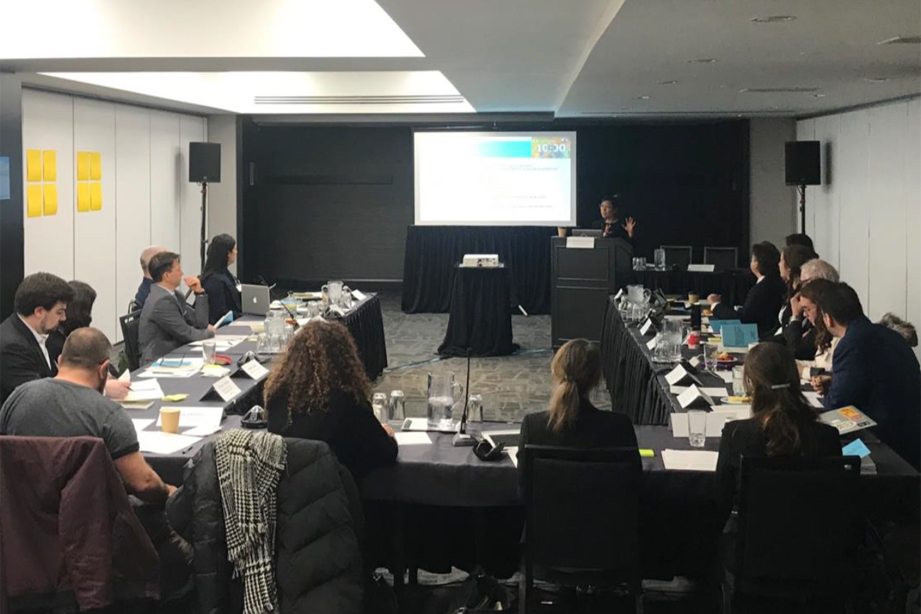Developing Policy to Affect Change for Children Living with Disabilities
Project Category: Projects – Cycle II
July 22, 2020

Challenge
Taking part in leisure activities is vital in maintaining a healthy lifestyle. However, for children with disabilities, it is often challenging to participate in active physical and other leisure activities such as organized sports, summer camps and art classes. These challenges can lead to feelings of isolation and exclusion.
Of course, finding ways to make these kinds of programs more accessible and available to children with disabilities is complex. The Childhood Disabilities Communication Hub approached this issue in several ways. One of which was developing provincial policy dialogues in British Columbia and Quebec, and Federal policy dialogue in Ottawa.
Project Summary
The ‘policy dialogues in childhood disabilities’ brought together people from different sectors such as private, public, and civil society and various systems (community organization, healthcare, education, provincial and municipal governments). The purpose was to discuss complex issues related to the participation of children with disabilities in the community. The policy dialogues focused on: 1) sharing research evidence about problems in participating in leisure activities, identified by organizations promoting leisure activities, and persons with disabilities and their families; and 2. finding collective solutions to the main challenges identified and coming up with solutions as a way of collaborating and informing future decisions related to promoting inclusion and participation of children with disabilities across Canada.
The B.C. team came together to discuss ways in which inclusion, access, and building capacity prevent children with disabilities from participating in leisure activities, and how these could be improved. The team in Quebec looked at how funding models and network models play a role in this same issue. At the federal level, the team informed policy stakeholders of the available research evidence that applied a human rights lens in matters related to children with disabilities. Also, they told researchers about the use of different policy briefs, type of information, and the utility of facilitated Policy Dialogues.
Result
In the end, the team developed strategies to better inform policymakers and community stakeholders about research on how to promote participation in leisure activities for children with disabilities, including the use of Human Rights to inform policy development. The dialogues have also informed the creation of the Policy Hub in Childhood Disabilities. This hub will use evidence from different groups of people (for example, caregivers, children, and civil organizations) to continue to address policy-relevant questions about children with disabilities and their participation as active citizens in society.
Funding
This project was part of the larger “Childhood Disabilities Communications Hub.” The hub was funded a total of $306,598 by participating partners.
Team
Principal Investigator
Keiko Shikako-Thomas, McGill University
Collaborating investigators
Annette Majnemer, McGill University
Research team
Ebele Mogo, University of Waterloo
Jonathan Lai, McGill University
Icoquih Badillo-Amberg, McGill University
Luca Martial, University of Cambridge
Simone Cavanaugh, McGill University
Mehrnoosh Movahed, McGill University
Partners
Sunny Hill Health Centre for Children Child Health
Aviva Sports Club
Canada Sports for Life
Observatoire Quebecois du Loisir
AlterGo
Evidence Alliance SPOR